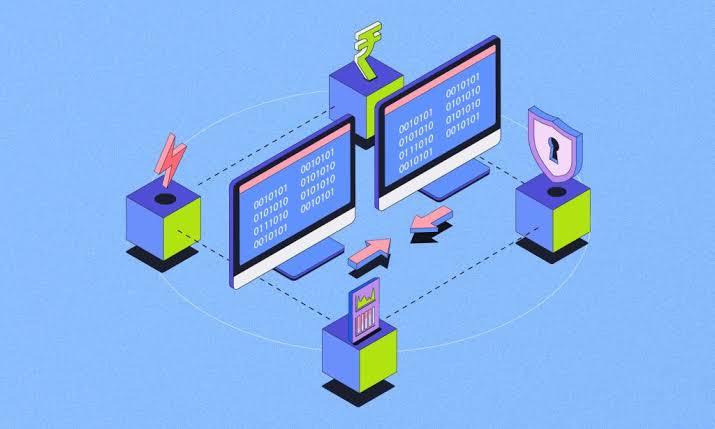Quantum computing has emerged as one of the most exciting and transformative technological advancements of the 21st century. Unlike classical computers that rely on bits, quantum computers use qubits, which leverage the principles of superposition and entanglement to process information in ways traditional machines cannot. This revolutionary approach promises to reshape industries, solve previously unsolvable problems, and create new opportunities for innovation. As we look toward the future, the potential applications of quantum computing are becoming clearer, with research and development accelerating rapidly across the globe.
Understanding the Promise of Quantum Computing
The power of quantum computing lies in its ability to perform complex calculations at unprecedented speeds. While classical computers process information linearly, quantum systems can evaluate multiple possibilities simultaneously. This makes them particularly effective for problems that involve massive datasets, optimization challenges, and simulations that require immense computational resources.
Quantum computing is not meant to replace classical computers but rather to complement them. In the future, hybrid systems that combine classical and quantum computing will be essential in tackling challenges that exceed the limits of today’s technology.
Key Advancements Driving Quantum Computing
The progress in quantum computing is fueled by both hardware and software breakthroughs. Major companies such as IBM, Google, Microsoft, and startups around the world are developing scalable quantum processors with increasing qubit counts and stability. Techniques like error correction and fault tolerance are advancing, helping to reduce noise and improve reliability in computations.
Cloud-based quantum computing platforms are also making the technology accessible to researchers and businesses. This democratization allows more industries to experiment with quantum algorithms and prepare for practical applications once the technology matures.
Applications in Cryptography and Cybersecurity
One of the most significant areas where quantum computing will make an impact is cryptography. Today’s encryption methods, such as RSA, rely on the difficulty of factoring large prime numbers. Quantum computers, however, could break these encryption systems in minutes using algorithms like Shor’s algorithm.
This presents both a threat and an opportunity. On one hand, existing security systems could become vulnerable, but on the other, quantum-safe encryption methods are being developed to protect sensitive information. The future of cybersecurity will likely involve a shift toward quantum-resistant algorithms, ensuring that data remains secure in the quantum era.
Transforming Drug Discovery and Healthcare
In healthcare, quantum computing holds the potential to accelerate drug discovery and medical research. Simulating molecules and chemical interactions on classical computers is incredibly complex, but quantum systems can handle these calculations more efficiently. This could lead to breakthroughs in developing treatments for diseases such as cancer, Alzheimer’s, and other conditions.
Pharmaceutical companies are already exploring quantum algorithms to model proteins and understand biological processes in greater detail. In the near future, personalized medicine could also benefit, with quantum computing enabling simulations of individual genetic makeup to create tailored treatments.
Revolutionizing Financial Services
The financial industry is another sector that stands to gain from quantum computing. From risk management to fraud detection, quantum algorithms can process massive datasets faster and more effectively than traditional systems. Portfolio optimization, which requires analyzing countless investment combinations, can be solved more accurately with quantum systems.
Banks and financial institutions are actively researching quantum use cases to improve decision-making, predict market trends, and enhance security measures. The future of finance could see quantum computing as a key driver of efficiency and profitability.
Enhancing Artificial Intelligence and Machine Learning
Quantum computing and artificial intelligence are expected to converge, unlocking new possibilities in data analysis and decision-making. Machine learning models often require vast amounts of data and computational power to train effectively. Quantum algorithms could speed up training processes and improve the accuracy of predictions.
For example, quantum-enhanced machine learning could transform industries like robotics, autonomous vehicles, and natural language processing by enabling faster and more sophisticated AI systems. This synergy could redefine how machines interact with the world and solve complex human problems.
Applications in Climate Modeling and Sustainability
Addressing climate change is one of the most pressing global challenges, and quantum computing may provide valuable solutions. Climate modeling requires analyzing countless variables and scenarios, which is difficult for classical computers to handle. Quantum systems, however, can simulate these models more accurately and efficiently.
This could help scientists predict extreme weather events, optimize renewable energy grids, and design more sustainable materials. In agriculture, quantum computing might be used to optimize crop growth patterns and improve food security in a changing climate.
Challenges Ahead for Quantum Computing
Despite its enormous potential, quantum computing still faces challenges that must be overcome before it becomes mainstream. Scalability remains a major hurdle, as increasing the number of qubits without compromising stability is difficult. Error correction also requires significant resources, limiting the practicality of current systems.
Another challenge lies in cost and accessibility. Quantum hardware is expensive to build and maintain, requiring specialized environments like near-absolute-zero cooling. However, as technology advances, costs are expected to decrease, making quantum solutions more accessible.
The Future Outlook
The next decade is likely to bring significant progress in quantum computing. Experts predict that practical applications will begin to emerge in specific industries before the technology becomes widely adopted. Hybrid models that integrate quantum and classical systems will be the first step toward real-world implementation.
Governments and private organizations are investing heavily in quantum research, signaling a global race to harness its potential. Nations that lead in quantum technology will gain a strategic advantage in science, economy, and security.
Conclusion
The future of quantum computing promises to transform the way we solve problems across multiple domains, from cryptography and healthcare to finance, sustainability, and artificial intelligence. While challenges remain, the rapid pace of research and innovation suggests that quantum breakthroughs are closer than ever. As industries prepare for this quantum future, the world stands on the brink of a technological revolution that could redefine the boundaries of possibility.




Nice
Outstanding
Interesting read
Interesting
I feel the human nature is moving to forward with things like this and is going above there understanding